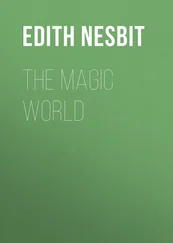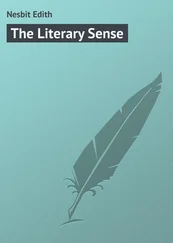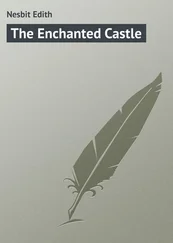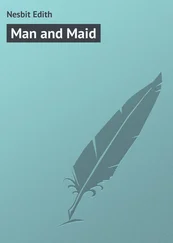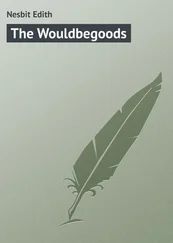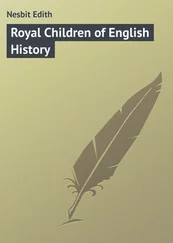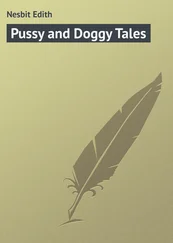Edith Nesbit - The Incredible Honeymoon
Здесь есть возможность читать онлайн «Edith Nesbit - The Incredible Honeymoon» — ознакомительный отрывок электронной книги совершенно бесплатно, а после прочтения отрывка купить полную версию. В некоторых случаях можно слушать аудио, скачать через торрент в формате fb2 и присутствует краткое содержание. Жанр: foreign_prose, на английском языке. Описание произведения, (предисловие) а так же отзывы посетителей доступны на портале библиотеки ЛибКат.
- Название:The Incredible Honeymoon
- Автор:
- Жанр:
- Год:неизвестен
- ISBN:нет данных
- Рейтинг книги:3 / 5. Голосов: 1
-
Избранное:Добавить в избранное
- Отзывы:
-
Ваша оценка:
- 60
- 1
- 2
- 3
- 4
- 5
The Incredible Honeymoon: краткое содержание, описание и аннотация
Предлагаем к чтению аннотацию, описание, краткое содержание или предисловие (зависит от того, что написал сам автор книги «The Incredible Honeymoon»). Если вы не нашли необходимую информацию о книге — напишите в комментариях, мы постараемся отыскать её.
The Incredible Honeymoon — читать онлайн ознакомительный отрывок
Ниже представлен текст книги, разбитый по страницам. Система сохранения места последней прочитанной страницы, позволяет с удобством читать онлайн бесплатно книгу «The Incredible Honeymoon», без необходимости каждый раз заново искать на чём Вы остановились. Поставьте закладку, и сможете в любой момент перейти на страницу, на которой закончили чтение.
Интервал:
Закладка:
"Or perhaps this isn't the real thing, either," he tried to reassure himself. "How could it be?"
Then he explained to himself, as he had often explained to Vernon, that love at first sight was impossible. Love, he had held and proclaimed, was not the result of the mere attraction exercised by beauty – it was the response of mind to mind, the admiration of character and qualities – the satisfaction of one's nature by the mental and moral attributes of the beloved. That was not exactly how he had put it, but that was what he had meant. And now – he had seen a girl once, for ten minutes, and already he could think of nothing else. Even if he thought of something else he could perceive the thought of her behind those other thoughts, waiting, alluring, and sure of itself, to fill his mind the moment he let it in.
"Idiot," he said at last, got up from the turf, and pocketed the map, "to-morrow she'll be quite ordinary and just like any other girl. You go for a long walk, young-fellow-my-lad, and think out a water-mill for Tommy."
This had, indeed, been more than half promised. Mr. Basingstoke was one of those persons whom their friends call thorough; their enemies say that they carry everything too far. If he did a thing at all, he liked to do it thoroughly. If he wrote a duty-letter to an aunt, he wrote a long one, and made it amusing. As often as not he would illustrate it with little pictures. If he gave a shilling to a beggar he would immediately add tobacco and agreeable conversation. One of his first acts, on coming into his inheritance, had been to pension his old nurse, who was poor and a widow with far too many children – too many, because she was a widow and poor and had to go out to work instead of looking after her family, as she wanted to do. Any one else would have written and told her she was to have two pounds a week as long as she lived. Edward sent her a large box of hot-house flowers – her birthday happening to occur at about that date – the most expensive and beautiful flowers he could find, anonymously. Then he sent her a fat hamper bursting with excellent things to eat and drink – and a box of toys and clothes for the children. The lady who "served" him with the clothes was amused at his choice – but approved it. And in the end he told his solicitors – smiling to himself at the novel possession – to write and tell the woman that an old employer had secured her an annuity. Later he went down to see her, to find her incredibly happy and prosperous, and to hear the wonderful and mysterious tale. So now, in the case of Tommy, most people would have thought an aeroplane and a motor-ride as much as any little boy could expect. But Mr. Basingstoke liked to give people much more than they could expect. It was not enough to give them enough. He liked to give a feast.
That evening after tea, Tommy breathing hard on the back of his neck, he sketched the water-wheel with the highest degree of precision and a superfluous wealth of detail. But the thought was with him through it all.
Next morning he went to the trysting-place, through the fresh, sweet morning. He climbed the wall, sat down on the log, and waited. He waited an hour, and she did not come. It says a good deal for his tenacity of purpose that when he went home he began at once on the water-wheel.
In the afternoon he took Charles out for a walk. Charles chased and killed a hen, and was butted by a goat, before they reached the end of the street; knocked a leg of mutton off the block at the butcher's in the next village; bit the rural police to the very undershirt, and also to the tune of ten compensating shillings; and was run over by a bicycle, which twisted its pedal in the consequent fall, and grazed its rider's hands and trousers knees. After each adventure Charles was firmly punished, but, though chastised, he was not chastened, and when they met a dog-cart coming slowly down a hill he was quite ready to run in front of it, barking and leaping at the horse's nose. The horse, which appeared to Charles's master to be a thoroughbred, shied. There was a whirl of dust and hoofs and brown flank, a cry from the driver – another cry, a fierce bark from Charles, ending in a howl of agony – the next instant the horse had bolted and Edward was left in the dusty road, Charles writhing in the dust, and the dog-cart almost out of sight.
"Charles, old man – Charles, lie still, can't you? Let me see if you're hurt."
He stooped, and as he stooped Charles did lie still.
His master lifted the heavy, muscular body that had been so full of life and energy. It lay limp and lifeless, head and hind-quarters drooping over his arm like a wet shawl.
Basingstoke sat down on the roadside with the dog across his knees. For him the light of life was out. Men do not cry, of course, as women do when their dogs die, but he could not see very clearly. Presently he found himself face to face with that question, always so disconcerting, even to criminals – what to do with the body. He was miles from his inn, and Charles was no light weight. He could not leave the dog in the road. His friend must have decent burial. There was nothing for it but to wait till some cart should come by and then to ask for a lift.
So he sat there, thinking such thoughts as men do think in adversity. After a calamity, when the first excitement of horror dies down, one always says, "How different everything was yesterday!" and Mr. Basingstoke said what we all say. Yesterday Charles was alive and well, and his master had not taken him out because he wanted to be at leisure to think – he realized that now – about the girl whom he was to have met to-day. And he had not met the girl. And Charles was dead.
"I wish I hadn't left you at home yesterday, old boy," said Mr. Basingstoke.
And then came the sound of hoofs, and he prepared to stop the vehicle, whatever it was, and beg for a lift for himself and what he carried. But when the wheels came near and he saw that it was the very cart that had run over Charles he sat down again and kept his eyes on the ground. It wasn't their fault, of course, but still..
The cart stopped and some one was saying: "I hope the dog isn't much hurt." A hard, cold voice it was.
Edward got out his hand from under Charles to take his hat off, and said: "My dog is dead."
"I am extremely sorry, but it was the dog's fault," said the voice, aggressively.
"Yes," said Edward.
"There's nothing to be done," said the voice. "It was nearly a nasty accident for us."
"I apologize for my dog's conduct," said Edward, formally.
And then came another voice, "But, Aunt Loo, can't we do anything?"
Of course you will have known all along whose voice that would be. Edward was less discerning. He had been far too much occupied with Charles and the horse to do more than realize that the two people in the cart were women – and now when he heard again the voice that had talked to him yesterday in the freshness of the morning, the shock sent his blood surging. He looked up – face, neck, ears were burning. Men do not blush, but if they did you would have said that Mr. Basingstoke blushed in that hour.
He looked up. Holding the reins was a hard, angular woman of fifty, the sort that plays golf and billiards and is perfectly competent with horses. Beside her sat the girl, and under her white hat the crimson of her face matched his own. The distress he felt at this unpropitious coincidence deepened his color. Hers deepened, too.
"You can't do anything, thank you," he said, just a moment too late. For his pause had given the aunt time to look from one to the other.
"Oh!" she said, shortly.
The girl spoke, also just too late.
"At least, let us take the poor, dear dog home for you," she said.
"By all means," said the aunt, with an air of finality. "Where shall we leave it?"
Читать дальшеИнтервал:
Закладка:
Похожие книги на «The Incredible Honeymoon»
Представляем Вашему вниманию похожие книги на «The Incredible Honeymoon» списком для выбора. Мы отобрали схожую по названию и смыслу литературу в надежде предоставить читателям больше вариантов отыскать новые, интересные, ещё непрочитанные произведения.
Обсуждение, отзывы о книге «The Incredible Honeymoon» и просто собственные мнения читателей. Оставьте ваши комментарии, напишите, что Вы думаете о произведении, его смысле или главных героях. Укажите что конкретно понравилось, а что нет, и почему Вы так считаете.




